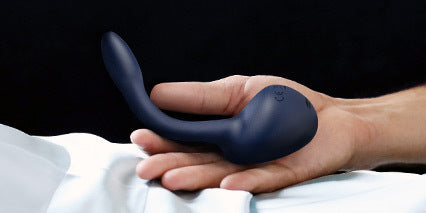Pelvic floor disorders (PFDs) are a common yet often overlooked health issue that can significantly impact a person's quality of life, including their sexual functioning. These disorders can cause physical discomfort and emotional distress and disrupt intimate relationships. By understanding the nature of PFDs and how they affect sexual health, individuals can better address these issues and maintain healthy relationships with themselves and their partners.
What are pelvic floor disorders?
The pelvic floor is a group of muscles, ligaments, and connective tissues that support the bladder, rectum, the uterus and vagina in females, and urethra and prostate in men. PFDs occur when the pelvic floor muscles become weak, damaged, or tight, causing problems with the functioning of these organs. The three main types of PFDs are:
1. Pelvic organ prolapse (POP)
This occurs when the pelvic floor muscles and other supporting structures can no longer hold the pelvic organs in their proper position, causing them to drop down and sometimes protrude from the vagina.
2. Urinary incontinence
This refers to the involuntary leakage of urine, which can be due to stress (e.g., coughing, sneezing), urgency, or a combination of both.
3. Fecal incontinence
This is the inability to control bowel movements, leading to accidental leakage of stool or gas.
PFDs can be caused by a variety of factors, including pregnancy, childbirth, aging, obesity, menopause, and previous pelvic surgery. Although PFDs are more common in women, men can also be affected, particularly if they have had prostate surgery or suffer from chronic constipation.
How do pelvic floor disorders affect sexual health?
PFDs can have a profound impact on sexual health and intimate relationships in several ways:
- Pain and discomfort
Pelvic floor disorders can cause pain during intercourse, known as dyspareunia. This can be due to muscle spasms, reduced lubrication, or pressure from a prolapsed organ. Painful intercourse can lead to a fear of sexual activity and diminished sexual desire.
- Decreased sensation and arousal
Weak or tight pelvic floor muscles can reduce sensation during sexual activity, making it difficult to become aroused or achieve an orgasm. In men, PFDs may contribute to erectile dysfunction or ejaculatory problems.
- Body image and self-esteem issues
The physical changes associated with PFDs, such as a visible bulge from a prolapsed organ, can cause feelings of embarrassment and self-consciousness, which may reduce the desire for sexual intimacy.
- Impact on relationships
The emotional and physical challenges associated with PFDs can lead to communication difficulties, misunderstandings, and emotional distance between partners, ultimately affecting their intimacy and sexual relationships.
Treatment options for pelvic floor disorders
The good news is that several treatment options can help individuals with PFDs improve their sexual health and overall quality of life:
1. Pelvic floor physical therapy
This involves working with a trained therapist who can teach patients specific exercises and techniques to strengthen and relax their pelvic floor muscles. This can help alleviate pain, improve sensation, and restore sexual function.
2. Medications
Certain medications can help manage symptoms related to PFDs, such as hormonal therapy for menopausal women or medications that relax the bladder muscles to reduce urinary incontinence.
3. Pessaries
These are silicone or rubber devices that can be inserted into the vagina to help support a prolapsed organ, reduce discomfort, and improve sexual function.
4. Surgery
In some cases, surgical intervention may be necessary to repair damaged pelvic floor structures or remove a prolapsed organ. Surgery can help restore normal anatomy and improve sexual function.
5. Counseling and sex therapy
For individuals and couples struggling with the emotional impact of PFDs on their sexual relationships, therapy can provide valuable support and guidance to improve communication, address emotional challenges, and develop strategies for maintaining intimacy.
Conclusion
Pelvic floor disorders can significantly affect sexual health and intimate relationships. However, by understanding the nature of these conditions and seeking appropriate treatment, individuals can improve their quality of life and maintain healthy sexual connections with their partners. So, if you are dealing with pelvic floor disorders, do not hesitate to find help today.































